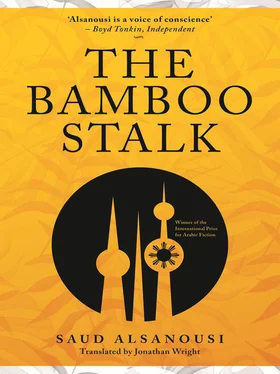5
Less than six months after I started my new job the manager of the Chinese centre told me I would have to look for a new job and he was giving me one week’s notice before my contract with them ended.
The law in the Philippines requires employers to give workers redundancy pay if they lay them off after more than six months in the job. Employers often lay workers off before the six months are up, so that they don’t have to make redundancy payments, and also because contracts are usually renewed automatically after the six-month period. Workers are always available, so it’s in the employer’s interest to terminate contracts before the six-month threshold and find new staff to replace those who are leaving. This may be why Filipinos rapidly acquire experience in a variety of trades, because the system keeps them moving from one job to another all the time.
Before my last week at the centre was over I had come up with a new job at a tourist hotel on the island of Boracay, south of Manila. I got it through one of my customers at the centre, who worked in a tourism company. It was a pathetic job, with a salary that would hardly keep me alive till the end of the month, but the man assured me that the tips from tourists would guarantee me a reasonable income. ‘That’s the most I can offer to a young man who hasn’t even graduated from senior school,’ he said.
When would my father’s promise be fulfilled , I wondered. When?
In the Philippines the doors had started to close in my face, one after another. All the doors left were only half-open. I could hardly slip through them, hardly make even a temporary living.
* * *
Before I set off for Boracay on the longest journey I had made since I was a baby, I passed by the family home and prepared the things I would need.
I felt as if I was trying out every possible means of transport that existed in the Philippines, all in a single day. I took a tricycle, a Jeepney, a bus, a train, a plane and finally a boat.
It was on the same boat that I began working. It was a small boat, with one man standing behind the rudder and another man helping him. I wasn’t lucky enough to be one of those two. I was the third man and my job was to stand in the bow with a long bamboo cane that I used to check whether we were approaching shallow water and to keep the bow away from rocks when we came into harbour. When we arrived I threw the painter and tied the boat to one of the bollards with a thick rope. Then I had to put the gangplank in place so that the passengers could embark or disembark. Then I followed after them, carrying their bags to the vehicle that took them to the hotel.
Every hotel in Boracay had one or more of these boats to bring the tourists over from the much larger island of Panay where there is a small airport at Caticlan. I spent the whole day going back and forth between the two islands, mostly standing at the bow. It was ten minutes there and ten minutes back. The boats, each marked with the name of its hotel, set off towards Panay as soon as we received word that a plane had landed. There would be dozens of boats heading for the same destination at the same time. The quality of the boats varied: some were luxurious, some were average and others were basic. The quality of the boat indicated the quality of the hotel it belonged to. When they set sail for the big island, the men working on the boats hoped to find plenty of tourists so they would stand a better chance of receiving more tips for their services.
My skin changed colour. The skin on my shoulders and my nose peeled off because of the salty water and the rays of the sun. I soon looked very different.
In Boracay I really missed the colour green. But I liked blue too. For all those years I had never seen how magical it was. In Boracay the world was an infinite expanse of blue. When I looked up at the blueness of the sky, I could imagine my eyes soaring like a pair of seagulls, their wings touching the white of the clouds. If they tired of flying I could imagine my eyes as a couple of fish in the sea, swimming through the endless blueness. I fell in love with the blue of the sky and the sea, whereas before I had noticed it only in Merla’s eyes.
In my work at Boracay I saw Kuwaitis again, for the first time since our meeting with Ismail in Manila. Newly married couples came on their honeymoons, as well as groups of young men in high spirits, six or more at a time. They came to the island when Kuwait had its long summer holiday. They were so happy. I loved the atmosphere they created wherever they went. They were crazy. They made lots of noise in the boat, singing together in my father’s language, which I didn’t understand. They were really good at clapping in rhythm. They formed a circle around one man, or two men facing each other, and started by clapping softly. They clapped louder and louder till it sounded like a hundred men, while the man in the middle of the circle did some weird dancing. He leaned forward and shook his shoulders, bending his legs and putting his hands on his head to hold his hat in place, then leapt up in the air as the circle around him broke up. They went on clapping while the man in the middle stayed where he was, swaying from side to side, then started moving his arms as if he were pulling on an invisible rope.
I loved them. I jumped for joy if I found out there were young Kuwaitis on the boat. At first I could only identify tourists as Arabs but later I could tell which of them were Kuwaitis. I tried to convince myself it was because I was one of them.
Their clothes, their shoes, their hats, their sunglasses, the perfumes they used — none of it was appropriate for the place they were visiting. Their clothes made them look rich but the way they behaved made them seem simple and naïve.
In return for a smile or for helping them across the gangplank between the boat and the quay, some gave me good tips. Money didn’t seem to mean anything to them. When they got into the jeep with the captain and his assistant and set off for the hotel, I looked at myself in the bow, holding the long stick, and wished the stick would change into a magic wand that could turn me into one of them.
I wanted to follow them and call out to them saying, ‘Hi! Stop! My name’s Isa. I’m one of you. Wait for me.’
The jeep drove off and their laughter faded into the distance. I sat on the ground not far from the boat, looking at it, imagining my father and mother aboard in those moments when I began my journey before I was born. I closed my eyes, then opened them again. I saw my father in his white cap with Ghassan, throwing their lines in the water, and Walid looking at me cross-eyed, sticking his tongue out at me. I went up to the boat. Walid vanished. I moved closer. My father disappeared. I stopped there in case the third man vanished too.
* * *
I lived in a small staff annex, next to the hotel and with a door that opened on to a narrow dusty lane between our hotel and the high wall of another hotel. If you walked to the right, you came to the beach and if you walked to the left you came to the street that ran parallel to the shoreline and went past the other hotels.
I only went to the staff annex to sleep. Before going to bed I often spent some time smoking cigarettes in the narrow lane or sitting on the beach nearby.
Off the beach there was a small island surrounded by water most of the time and known as Willy’s Rock, with a palm tree on it and two other trees I never identified. Under one of the trees there was a niche made of pebbles, with a statue of the Virgin Mary inside, facing the beach. Her face was at peace and beautiful and her hands were clasped in prayer. She had a golden halo around her head.
When the tide was out people could walk to the rock but when the tide was in they had to swim out. Then they would climb some stairs, stand in front of the niche, pray and light a candle.
Читать дальше












